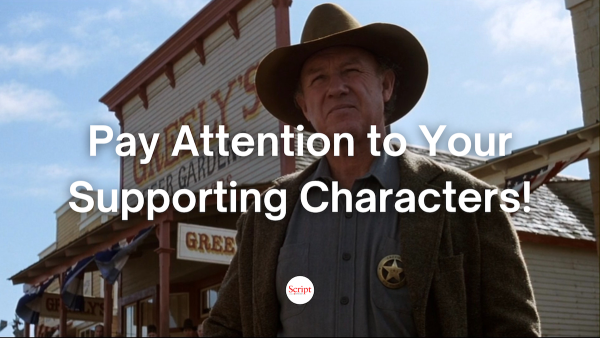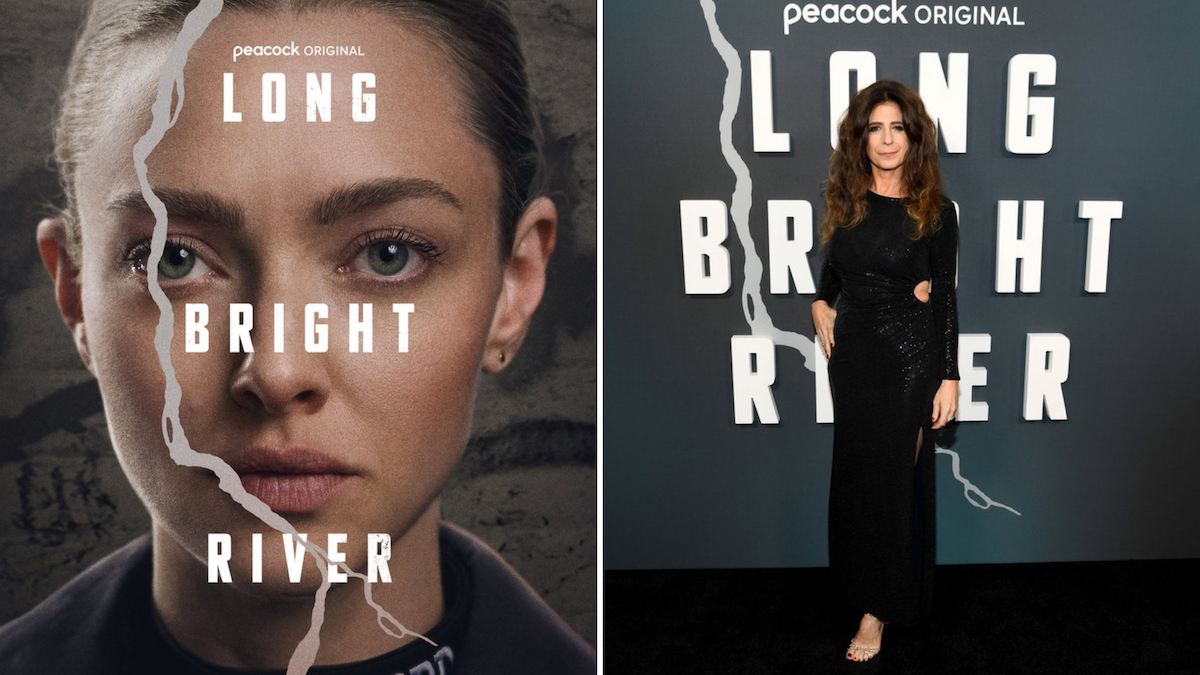MEET THE READER: Spec Script No Nos
When writing and presenting your spec script, you want to be sure to avoid doing anything that might undermine its salability or peg you as an amateur. Ray Morton gives you insights into making your spec shine.
Ray Morton is a writer, senior contributor to Script Magazine and script consultant. His new book A Quick Guide to Screenwriting is now available online and in bookstores. Follow Ray on Twitter: @RayMorton1
There are two reasons to write a spec script. The first, of course, is to sell it to a studio or a producer so they can (hopefully) make it into a movie. The second is to use it as a calling card – as a sample to show the industry that the talent, the skills, and the judgment to succeed as a professional screenwriter. So obviously, when writing and presenting your spec, you want to be sure to avoid doing anything that might undermine its salability or peg you as an amateur. I read a lot (a lot) of specs and there are a number of mistakes that up and coming writers make that indicate that they and/or their work are not yet ready for the big leagues. With that in mind, here are a few tips to help you avoid giving potential buyers and employers the wrong impression.
SUBJECT MATTER
- Don’t write personal stories unless you can find a way to make them accessible to a broad audience. New writers often use their own lives – pivotal and/or meaningful events or experience they want to share with the world -- as source material for their scripts. In theory this isn’t a bad idea – many artists in all mediums do the same. The problem is that, as lived and written about, these events and experiences are often too personal – so specific to the individual author that they have no relevance for anyone else. The challenge for every writer creating a script based on their own lives is to develop the material in such a way that not only reflects the truth of his personal journey, but will also entertain an audience. Too many personal specs I read do a good job of capturing the author’s subjective experience but fail to infuse that experience with entertainment value: with a strong premise; solid dramatic construction; interesting characters; action; humor, and so on. Producers and studios need scripts and screenwriters that are able to do this because even the smallest, lowest budgeted, most personal indie film needs to attract a sizeable audience for it to be a financially viable proposition. And naval gazing just doesn’t sell tickets.
- Don’t write adaptations of material you don’t own the rights to. Adaptation rights can be very difficult and expensive to acquire -- often far beyond the means of a humble spec script writer. A number of novice scribes plow ahead anyway, laboring under the delusion that if a producer or studio likes their script, then they will go to the trouble (and spend the money) to acquire the underlying rights. They won’t. It’s too much of a hassle and contains too much potential legal jeopardy. It’s much easier for them to simply pass on your script, which is what they will do. They will also pass on you as a potential writer because you will have displayed such poor judgment and lack of awareness as to how things work in the real world.
- Don’t write sequels to popular films. You may have a great idea for a follow-up to this summer’s biggest hit. Congratulations, but don’t waste a second of your life writing it down. A lot of aspiring speccers do, thinking that if they can get their script to the producers that control the rights to the parent film, then those producers will see how brilliant it is and decide right then and there to make it the next entry in their series. This will not happen. Sequels are big business and they’re developed in-house by a handpicked stable of highly-experienced, highly-paid writers. Outside scripts stand no chance whatsoever. This is simply a fact. Accept it. You will embarrass yourself if you don’t.
- Don’t write sequels to your own scripts. Sequels are only made if the first film is a terrific success. Since a spec script by definition has not been made and thus can not have become a terrific success, there is no way to tell if a sequel is warranted. So if you write a follow-up to your own unproduced work, people are either going to think that you’re arrogant or naïve. Either way, they’re not going to take you seriously.
- Likewise, do not write trilogies or sixteen-part epics (that last one’s not a joke, I once had to wade through a sixteen-part spec sci-fi/fantasy extravaganza). It was a painful, painful experience.
EXECUTION
- Don’t write a novel -- don’t take up valuable page space with lengthy descriptions of costumes, settings, atmosphere, or your characters’ internal thoughts or feelings and don’t waste time trying to impress people with a virtuoso display of your literary writing style. Nobody cares and it’s actually bad screenwriting. Screenplays are not literature, they are blueprints. Good screenwriting is about precision and conciseness – crafting brief but evocative sentences that create a strong overall impression that the director, actors, and other craftspeople can then interpret. Good screenwriting is also about dramatization – about communicating ideas strictly through images, action, and dialogue. In other words, it’s about finding effective ways to show viewers what the characters are thinking and feeling rather than telling them. If you can’t demonstrate an ability to do these things, then it won’t matter how good of a writer writer that you are, you will be of no use to anyone as a screen writer.
- Don’t direct on paper. This is advice that is given a lot but not heeded nearly as much as it should be. In the studio era, screenwriters were expected to incorporate a lot of directorial choices into their scripts – to indicate camera angles, placement, and movement and to specify transitions (cuts, dissolves, etc.). But that has not been the case for many, many years. Modern screenplays are expected to be written in master scene format – describe what is going on and what people say and that’s all. Do not incorporate detailed descriptions of shots, angles, camera movement, or transitions. Likewise, do not provide detailed descriptions of settings or costumes; don’t indicate music cues or song choices; don’t give the actors line readings; and don’t describe the titles or credits or indicate where they should appear. Your job is to tell the story – nothing more (and that’s plenty). No one cares how you think the movie should look or be filmed and any suggestions you do make will be ignored. If you don’t demonstrate that you understand this, producers and studios will find someone that does.
- Don’t write a spec that runs longer than 120 pages (and ideally no longer than 110). This is another bit of advice that is given all the time (especially by me) but frequently not listened to. It’s not just that no one wants to read an overlong script (although they don’t) but it’s also a matter of demonstrating competence in the task at hand. A spec script is an original story conceived directly for the screen. To successfully craft one, a writer needs to have a firm understanding of the parameters of cinematic storytelling. For many reasons both creative and practical, it is generally accepted that the running time of the average commercial narrative film should be somewhere between ninety and one hundred-twenty minutes, so a screenwriter needs to figure out how to tell his/her story in that amount of time. The existence of the thousands and thousands of feature films made over the past century proves it is possible to do so and numerous paradigms and guidelines have emerged that, if followed, can help a writer get the job done. So when anyone involved in motion picture story development picks up a spec that runs longer than 120 pages, the first thing they are going to think is that the writer couldn’t get the job done and that the script is either going to be poorly structured or contain lots of extraneous material or both. And ninety-nine times out of a hundred, they’re going to be right. Now, you may indeed have a story that truly justifies a page-length longer than 120 pages and if you truly do, then the reader will recognize this and is not going to penalize you for running long – after all, a great story is a great story. But just make sure that you aren’t fooling yourself, because – as I have said many times in this very column -- in all of the years that I have been reading and analyzing specs, I have only once come across one that ran longer than 120 pages and deserved to. The rest all needed to be seriously restructured or else have ten or fifteen pages chopped out of them. You can think your script is the exception if you want, but it probably isn’t.
- Scripts are hard to read, so give your reader a break. Don’t present your scenes in large blocks of text. Instead break long paragraphs up into smaller, easier to digest chunks. Avoid long speeches that go on for page after page and leave a generous amount of white space on the page.
PRESENTATION
- Don’t put the WGA registration number or a copyright notice on the cover page of your script. That is something only amateurs do.
- If your script is based on a book you wrote that has never been published, then don’t include the line “based on the novel by…” on your title page. Technically, if your novel has never been published, then it is simply the notes you used to develop your screenplay. Most writers that include such a credit do so to make the script seem more impressive (“It must be important – it’s based on a novel!”), but if it’s a novel that no one’s ever heard of and that is not available to read, then it’s only going to seem silly.
- Don’t put your production company name on the cover of the script, especially if you don’t really have a production company (they’re actually legal entities, not just a name that you arbitrarily slap onto a cover page – e.g. Joe Blow Entertainment). Novice screenwriters often do this to make themselves seem like serious players and not just another aspirant (“Hey, this guy must be for real – he’s got his own production company!”), but if you’re writing a spec, it usually means you are an aspirant. (Plus, if you actually have a production company, why are you sending your script to other production companies to get them to buy it? Why isn’t your production company making it?). Trying to make people think you are more than you are isn’t going to fool anyone and you’ll just make yourself look less so by trying.
These are all fairly common mistakes, but they are easily avoidable ones. It’s hard enough to get you and your work noticed in this business, so the last thing you want to do is to get noticed for the wrong reasons. Hopefully following these tips will allow you to get noticed for the right ones.
THE END
Copyright © 2015 by Ray Morton
All Rights Reserved
No portion of this article may be copied, reprinted,
or reposted without the permission of the author
However, feel free to link to this piece to your heart’s content
- More articles by Ray Morton
- Breaking & Entering: Keep-It-Simple Storytelling
- FREE Story Structure Download
Get tips on story structure in Corey Mandell's webinar
How Professional Writers Structure Their Scripts
Ray Morton is a writer and script consultant. His many books, including A Quick Guide to Screenwriting, are available online and in bookstores. Morton analyzes screenplays for production companies, producers, and individual writers. He can be reached at ray@raymorton.com. Twitter: RayMorton1





![The Era of the Multi-Hyphenate: An Interview With Writer and Filmmaker Mario O. Moreno [SERIES]](https://scriptmag.com/uploads/MjEzMTEyNzA4NjQ2NTc3NjE1/the-era-of-the-multi-hyphenate-series-script-hero.png?format=auto&optimize=high&width=1440)